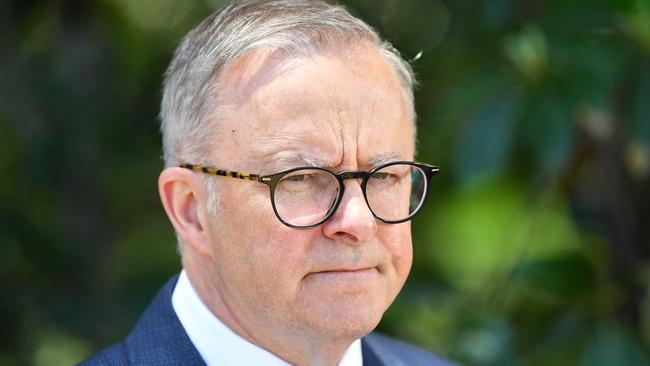PM wants to fix nation’s care economy — but it’s going to cost you
Anthony Albanese has sounded the alarm at the state of the nation’s early childhood, disability, veterans and aged care systems. Fixing them will be a major focus for him.
NSW
Don't miss out on the headlines from NSW. Followed categories will be added to My News.
Anthony Albanese has sounded the alarm at the state of the nation’s early childhood, disability, veterans and aged care systems, signalling that fixing them will be a major focus of his prime ministership.
But the scale of the problems in the nation’s care economy, laid out in a draft strategy to be released on Sunday by the PM, could be beyond the capacity of government to fix, the document warns.
The draft National Care and Support Economy Strategy lays out the plight of low-paid workers in the care economy and, in the case of many family members who support their loved ones, those on no pay.
The Prime Minister told News Corp the government wants to hear from carers, the cared-for and their families.
“The Australian government is committed to setting a new direction for this sector through an accessible and sustainable care and support economy,” he said.

“To do this, we need to hear from those directly impacted by it. I encourage people to have their say on the draft strategy so we can ensure it reflects the needs of the community.”
The PM said the care and support workforce was integral to the Australian economy, particularly because demand for aged care and early education services was on the rise.

The draft National Care and Support Economy Strategy paints a bleak picture of the current situation, with “high turnover across the system because the jobs have low pay and recognition, limited career progression, high workloads and, at times, unsafe work conditions”.
Workers across all areas of the care economy “share similar workforce demographics, with a predominantly female workforce and a high proportion of workers from migrant and refugee backgrounds”.
Most entry-level jobs have “no or low qualification requirements”.
But it warns that fixing these problems in “fiscally constrained environment” will be difficult, with “higher pay in care and support services funded by the government” needing to be carefully balanced with “increasing demand for care and support services, rising service costs amid high inflation and a shrinking working population are all expected to increase the cost of providing these services”.
At the moment public funds are the major source of funding for care and support services, which is unlikely to change.
“However, in the face of increasing demand (both in numbers of people needing care and support services and expectations of service levels), there are challenges to continuing to finance care and support the way we currently do, through current Australian government revenue including taxes.

“Due to demographic changes — an ageing population and decreasing birthrate — there will be a smaller pool of working age people contributing income tax into the future.
“Ongoing reliance on tax revenue to fund the costs of care and support programs would require increasing tax rates or reducing government spending in other areas.”
It warns the “forecast for significantly increasing costs across the care and support economy” means it is “all but certain that the costs of these services will significantly increase as a proportion of the government’s budget”.
The paper argues this means “there needs to be a broader national conversation about the expectations on government-funded service provision and the relative contribution between governments and individuals”, which includes such questions as the appropriate level of service they should fund and what level of care and support they people need as opposed to what they want.
Mr Albanese said: “Every Australian should have access to high-quality care and support, and that means we need to invest in high quality jobs in this sector.
“The Australian government is committed to setting a new direction for this sector through an accessible and sustainable care and support economy.”
More Coverage
Read related topics:Anthony Albanese





